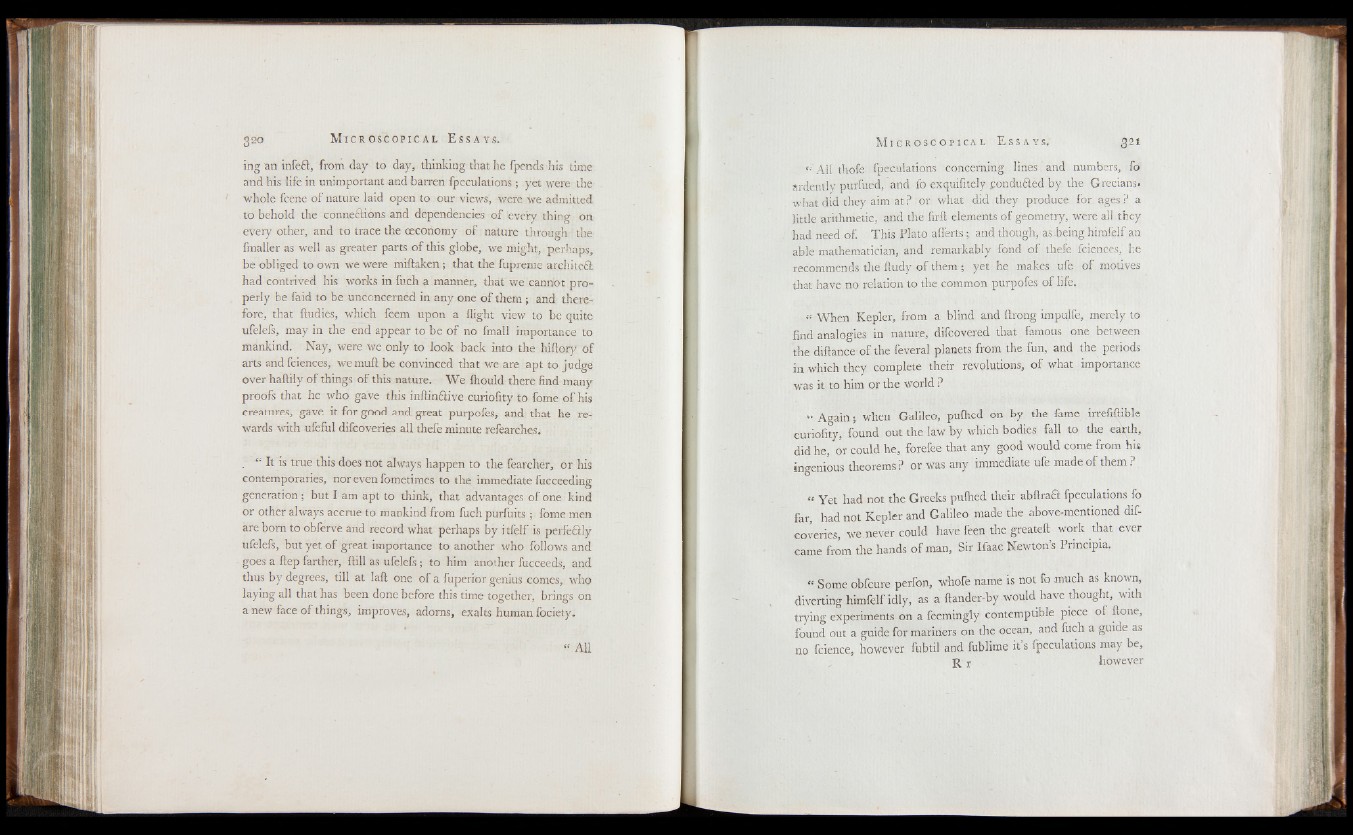
ing an infeft, from day to day, thinking that he fpends his time
and his life in unimportant and barren fpeculations ; yet were the
whole fcene o f nature laid open to our views, were we admitted
to behold the conneftions and dependencies o f every thing on
every other, and to trace the ceconomy o f nature through the
fmaller as well as greater parts of this globe, we might, perhaps,
be obliged to own we were miflaken; that the fupreme archkeft
had contrived his works in fuch a manner, that we cannot properly
be faid to be unconcerned in any one o f them ; and therefore,
that liudies, which feem upon a flight view to be quite
ufelefs, may in the end appear to be o f no finall importance to
mankind. Nay, were we only to look back into the hiftory o f
arts and fciences, we mull be convinced that we are apt to judge
over haftiiy o f things of this nature. We Ihould there find many
proofs that he who gave this inffin&ive curiofity to fome of his
creatures, gave it for good and great purpofes, and that he rewards
with ufeful difcovcries all thefe minute refearches.
. “ It is true this does not always happen to the fearcher, or his
contemporaries, nor even fometimes to the immediate fucceeding
generation; but I am apt to think, that advantages o f one kind
or other always accrue to mankind from fuch purfuits ; fome men
are born to obferve and record what perhaps by itlelf is perfecily
ufelefs, but yet o f great importance to another who follows and
goes a Hep farther, Hill as ufelefs • to him another fucceeds, and
thus by degrees, till at laft one of a fuperior genius comes, who
laying all that has been done before this time together, brings on
a new face o f things, improves, adorns, exalts human fociety.
All
‘•' All thofe fpeculations concerning lines and numbers, fo
ardently purfued, and fo exquifitely fondu&ed by the Grecians«
what did they aim at ? or what did they produce for ages ? a
little arithmetic, and the firft elements of geometry, were all they
had need of. This Plato alferts; and though, as being himfelf an
able mathematician, and remarkably fond o f thefe fciences,' he
recommends the ftudy o f them ; yet he makes ufe of motives
that have no relation to the common purpofes o f life.
“ When Kepler, from a blind and ftrong impulfe, merely to
find analogies in nature, difcovered that famous one between
the dillance ol the feveral planets from the fun, and the periods
in which they complete their revolutions, o f what importance
was it to him or the world ?
‘ ‘ Again; when Galileo, pufhed on by the fame irrefiflible
curiofity, found out the law by which bodies fall to the ear ill,
did he, or could he, forefee that any good would come from his
ingenious theorems P or was any immediate ufe made o f them ?
« Yet had not the Greeks pulhed their abftraft fpeculations fo
far, had not Kepler and Galileo made the above-mentioned dif-
coveries, we . never could have Teen the greateft work that ever
came from the hands of man, Sir Ifaac Newton’s Prmcipia.
“ Some obfcure perfon, whofe name is not fo much as known,
diverting himfelf idly, as a ftander-by would have thought, with
trying experiments on a feemingly contemptible piece o f ftone,
found out a guide for mariners on the ocean, and fuch a guide as
fcience, however fubtil and fublime it’s fpeculations may be,
R r however
no